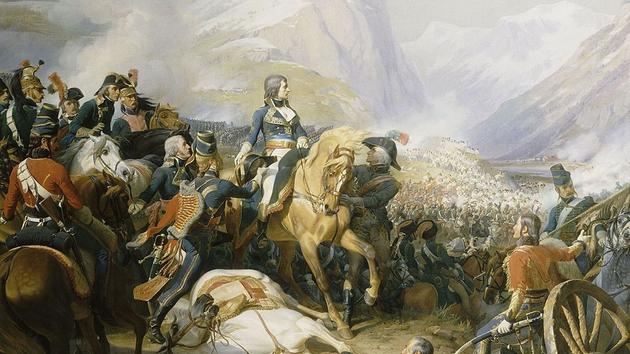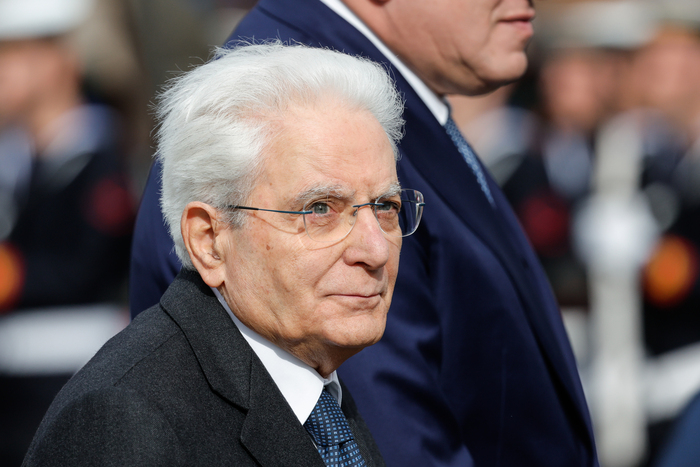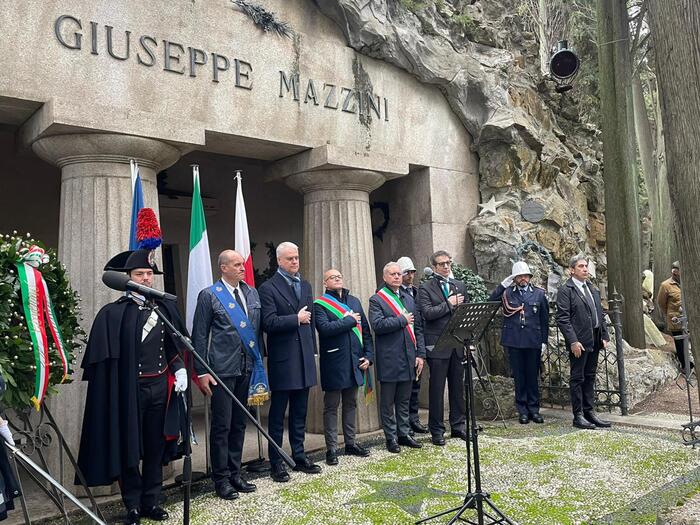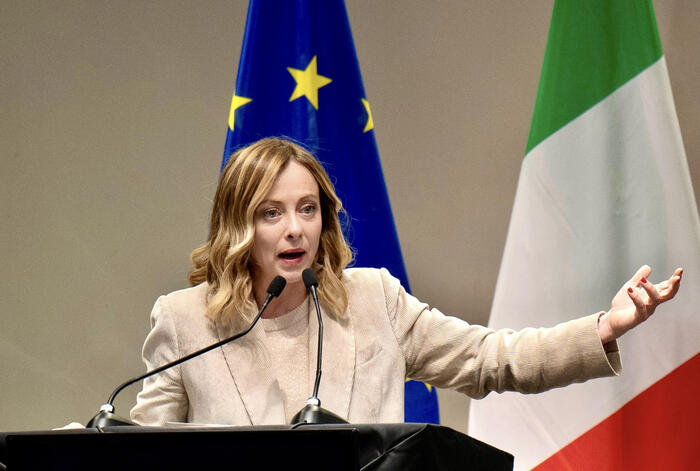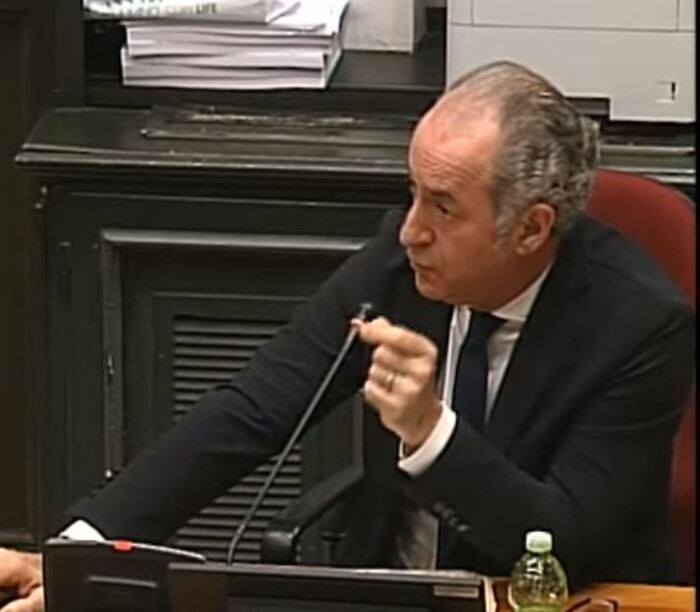Doctor in the history of international relations, Stefano Pilotto is a specialist in European issues and professor at the MIB School of Management in Trieste.
Napoleon Bonaparte did not go unnoticed in Italy.
The 200th anniversary of his disappearance on the island of Saint Helena today leads the minds of Italians to meditate on this gigantic historical figure, who left a deep mark in the national memory of the Italian people and in their landscape. cultural, social, legal, educational and administrative.
Due to his surname and his Italian origins (his father Carlo Buonaparte and his mother Letizia Ramolino were born in Ajaccio and their dominant culture was Italian, with the Buonaparte family having Ligurian and Tuscan origins), Napoleon was often considered to be an expression of the genius of the peninsula, but his life was spent in France, in the service of France and for France. What, then, is the connection between the one who was the great emperor of the French and Italy? By what sentiments do Italians honor today man, the emperor?
Napoleon twice conquered the territory of the peninsula, in 1796-1797 and in 1800. The victory by arms allowed him to become the judge of borders, the source of institutions, the origin of constitutional and administrative architecture, the cultural base. of a new era whose roots were nourished by the French Revolution of 1789.
It was the time of the birth of the Italian tricolor and the symbols that have accompanied the course of the nation until the present time.
The resistance of the Italians to Bonaparte was less vigorous compared to that of other populations in Europe: the victorious French campaigns brought about the end of absolute states, the adoption of democratic constitutions, the formation of new states (the Cispadane Republic, the Ligurian Republic, the Anconitan Republic, the Roman Republic, the Parthenopean Republic). It was the time of the birth of the Italian tricolor and the symbols that have accompanied the course of the nation until the present time. Napoleon was master of the peninsula, controlled the new states, imposed his men and his ideas, but the Italians adapted without reacting too much: they understood that the innovations acquired were more important to them than submission to a foreign power.
Napoleon created the Kingdom of Italy, he donated the civil code and administrative centralism, he adopted in France reforms then introduced beyond the Alps.
Certain decisions, on the other hand, produced deep disappointments: by the Treaty of Campoformio (1797), Bonaparte transferred the Republic from Venice to Austria. This was the source of great suffering for all Venetians, and for those who also lived in Istria and Dalmatia. The great Italian poet Ugo Foscolo, born in Zacynthe (Venetian island south of the Adriatic Sea), was the image of this pain and he went into exile abroad for the rest of his life. The death of the Republic of Venice provoked many manifestations of hostility towards Napoleon. The victories and the proclamation of the Great French Empire nevertheless aroused growing tolerance. The Venetian population inaugurated a statue in honor of Napoleon in the middle of the small square ("Piazzetta") of Saint-Marc,on his birthday, August 15, 1811, to show the gratitude of the Venetian community for the establishment of the free port. This gesture, however, did not bring together the entire population, feelings of resentment still being present among many Venetians. When the Emperor abdicated for the first time (April 1814), his detractors broke out and they nearly destroyed the statue, which was moved to the island of Saint George Major.its detractors burst out and they almost destroyed the statue, which was moved to the island of Saint-Georges Major.its detractors burst out and they almost destroyed the statue, which was moved to the island of Saint-Georges Major.
Napoleon's popularity in Italy was often and brutally questioned, moreover, when he ravaged many Italian cities: he took several artistic works and this provoked obvious feelings of animosity among Italians.
Relations between Napoleon and the Catholic Church were no less bitter and conflicting.
The standoff over the appointment of bishops in France, the annexation of the State of the Church, the “kidnapping” of Pius VII for several years created a ditch that only the fall of Napoleon could finally eliminate.
But he created the Kingdom of Italy, donated the civil code and administrative centralism, adopted reforms in France which were then introduced beyond the Alps, and gave life to the university.
The forces of renovation were more important than the political blunders or the military losses.
Napoleon's presence in Italy armed the minds of the patriots who contributed to the Risorgimento (Italian national unity movement) throughout the 19th century.
The embodiment of enlightened authoritarianism, Napoleon today evokes strategic genius in Italy, the portrait of a modern civilization forged by the principles of 1789 and the legacy of Roman Caesarism never buried by history.
Despite his absolute power, which contradicts the aspirations of those who attacked the Bastille, he was a precursor of European integration.
Its presence in Italy armed the minds of the patriots who contributed to the
Risorgimento
(Italian national unity movement) throughout the 19th century.
Following the extraordinary verses of the great romantic poet Alessandro Manzoni, mentioned in his poem "
Il 5 Maggio
" (The Five of May) [reference to May 5, 1821, date of Napoleon's death in Saint Helena, Editor's note], Napoleon represented an era and he was the arbiter between two opposing centuries, that of the Enlightenment and of enlightened rationalism against that of irrational romanticism and of the Nation.
The affection that Italians show towards Napoleon is confirmed by the number of sculptures and portraits, streets and roads which are dedicated to him or which bear his name.
The timeless affection that Italians show towards Napoleon is confirmed by a number of sculptures and portraits, streets and roads which are dedicated to him or which bear his name all over Italy. From Spain to Moscow, from German territories to Egypt, Napoleon left his moral and material imprint in Europe. His time cannot be compared to that of today: the sense of respect and the desire for peace between the countries of the old continent take precedence - at the present time - over any authoritarian temptation, but Napoleon's legacy is a essential page in the complex book of our history and, despite the horrors of wars and unjustifiable ambitions of conquest, Italy pays homage to the memory of a man who arouses - despite everything - admiration.

